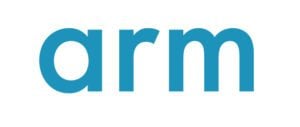The Q&A—On Mentors and Role Models in STEM Fields
 With Arm’s Liana Nicklaus
With Arm’s Liana Nicklaus
“If you care deeply about an issue and want to see it improve, whether that’s women’s professional development or something completely different, it’s time to get to work, because it’s not going to happen without you.”
Q: Which people have been your most important mentors and role models throughout your life?
As a kid, my most important role models were my parents. I learned how to advocate for myself and speak in a professional manner by overhearing my mom’s conference calls and having long talks with her in the car while she drove me around to after-school activities. My dad passed down his passion for science and engineering through many evenings and weekends spent running experiments with my sister and I in the kitchen sink, taking us to science camp, and helping us with math homework.
Moving on to my adult life, with the Arm Austin Women’s Network, I have been lucky to be surrounded by several senior women who have modeled for me how to be an effective leader, run successful meetings, and gather and respond to feedback. Their advice has been invaluable to me and has had a substantial impact on the way I lead the network, the programs we choose to run, and the way we run them. I have also had many important male role models throughout my career. For example, I greatly admire the technical lead of my team and aspire to someday have the same wide-ranging understanding he does of all the different technologies that impact our work. He has patiently spent a lot of time with me over the years helping me identify which skills are important to develop, pointing me at resources to build those skills, and connecting me with others at the company who can help me deepen my understanding.
Q: You’re also involved in helping girls discover careers in STEM. How did you decide to become an engineer and did role models play a part?
When I was in high school and was deciding on a college major, I remember being really torn between history and electrical engineering. As I mentioned, my dad is an engineer and certainly a role model of mine, and I also had a fantastic electronics teacher, whose class played a pivotal role in building my interest in electrical engineering specifically.
However, I also had an extremely strong passion for liberal arts fostered by my Creative Writing and History teachers who I hugely respected. I remember discussing this choice to death with my parents and friends. I even discussed it with my History teacher, which prompted him to say to me, “You are good at math and science in a way I never was. You’re great at history, too. But an engineering degree will pave your path in life in a way that a degree in history probably can’t.”
There have been many stories coming out recently about how girls are just as good as boys at math, but even better at reading and writing, and as a result choose liberal arts over STEM. That was definitely my situation, and I’m glad I had adult role models around me who pushed me toward engineering. It has been a wonderful career so far. There were lots of job opportunities open to me when I graduated. My employer values me. I am constantly able to learn, grow, and work with smart, kind people. My writing skills have still served me well. I paid my way through engineering school writing scholarship essays, and being able to communicate effectively is an asset in any role.
Q: As chair of the Arm Austin Women’s Network, how do you help women find role models?
We know that role models, mentors, and sponsors are essential to career building, but figuring out how to foster those relationships is difficult. Our Women’s Network has tried to tackle this problem with several approaches. One is getting involved with organizations like the Texas Conference for Women who connect women with inspirational speakers and leaders from around the world.
Another is to elevate the visibility of female leaders within the company, which we have done through a presentation series we call Leadership Lunches. A program we’ve had particular success with is our summer mentorship program, in which we match interns and recent graduates with established women employees to give them a role model and source of perspective and advice on their career.
In the context of that program, figuring out how to match mentor-mentee pairs was something we gave a lot of thought. Over the years, we’ve learned that assigned pairings tend to fall flat, no matter how carefully chosen. The past two years, we’ve been starting with a “speed-networking” event, as well as posting profiles of each mentor on our internal site. Mentees can then pick their mentor based on who they clicked with, or who has a background matching their career goals. Sometimes a small number of mentors will be exceptionally popular, but we’re always able to match folks with at least their second or third choice, if not their first.
Q: What other top tips do you have for running a mentorship program?
Training your mentees is just as important as training your mentors. As a mentor, when someone just shows up and says, “Mentor me!” even in the context of a formal program, you have no idea how to help them beyond spewing some generic advice and aimlessly talking about yourself, which is generally ineffective. If a mentee comes in with a list of questions they need answered, decisions they need help making, or problems they need help solving, the mentor can then marshal their connections and career experience to give the mentee the input and resources they need to get answers.
Having some follow-through is also necessary. Many mentorship programs match up their pairs and then send them on their way with no future plans. The start of a mentoring relationship is awkward, and mentors tend to be extremely busy people. Even if both sides had the intent to form a lasting relationship, a situation happens where a mentor has very little time, and the mentee is nervous to demand it in a freshly formed relationship where there is usually a significant power gap. So, planning a few meetings or events for the following weeks and months can be really helpful. This can be as simple as recommending a schedule of one-on-one meetings. We’ve found that a coffee voucher with an expiration date makes a great incentive for pairs to have their initial meeting and break the ice. If you want to put in a bit more effort, group events with a mentorship program cohort are also great, as it gives both mentors and mentees a chance to get support from their peers. In our end-of-program surveys—another good idea—we’ve had huge demand for more group events.
Q: Have you seen some strategies work better than others in fields such as engineering where women are underrepresented?
In fields where women are underrepresented, it’s important to consider the intent of your program and what that means for how you select mentors. With our early careers program, we do want to boost these young engineers’ careers. But we also want to provide role models so that they see that people like them can be successful at our company. As a result, most of our mentors are women.
Recently, we’ve started planning a career development program for experienced women at the company. Women are a minority in the field, and even more of a minority in leadership, so depending solely on senior women to sponsor and mentor the participants in the program would severely limit our pool of mentors, prevent women from forming relationships with male senior leaders, and put the weight of the program’s success entirely on women’s shoulders. In cases like that, it’s vital to seek the participation of senior men, too, in order to achieve the desired outcomes.
Q: If you were to choose one quote that best describes how you try to live your life, what would it be?
I love this quote from The Lorax: “Unless someone like you cares a whole awful lot, nothing is going to get better. It’s not.” When the Women’s Network at Arm started, I felt we could do so much more to help champion women at the company, so I stepped up and put in the time. Seeing everything we have accomplished in the past few years has been deeply gratifying, and I know that it would not have come to fruition without the dedication of a small number of individuals. If you care deeply about an issue and want to see it improve, whether that’s women’s professional development or something completely different, it’s time to get to work, because it’s not going to happen without you.
Liana Nicklaus is a Senior Design Engineer at Arm, whose work as a logic designer contributes to Arm’s Neoverse Internet infrastructure products. She is also chair of the Austin chapter of Arm’s Women’s Network.
Sponsored by
